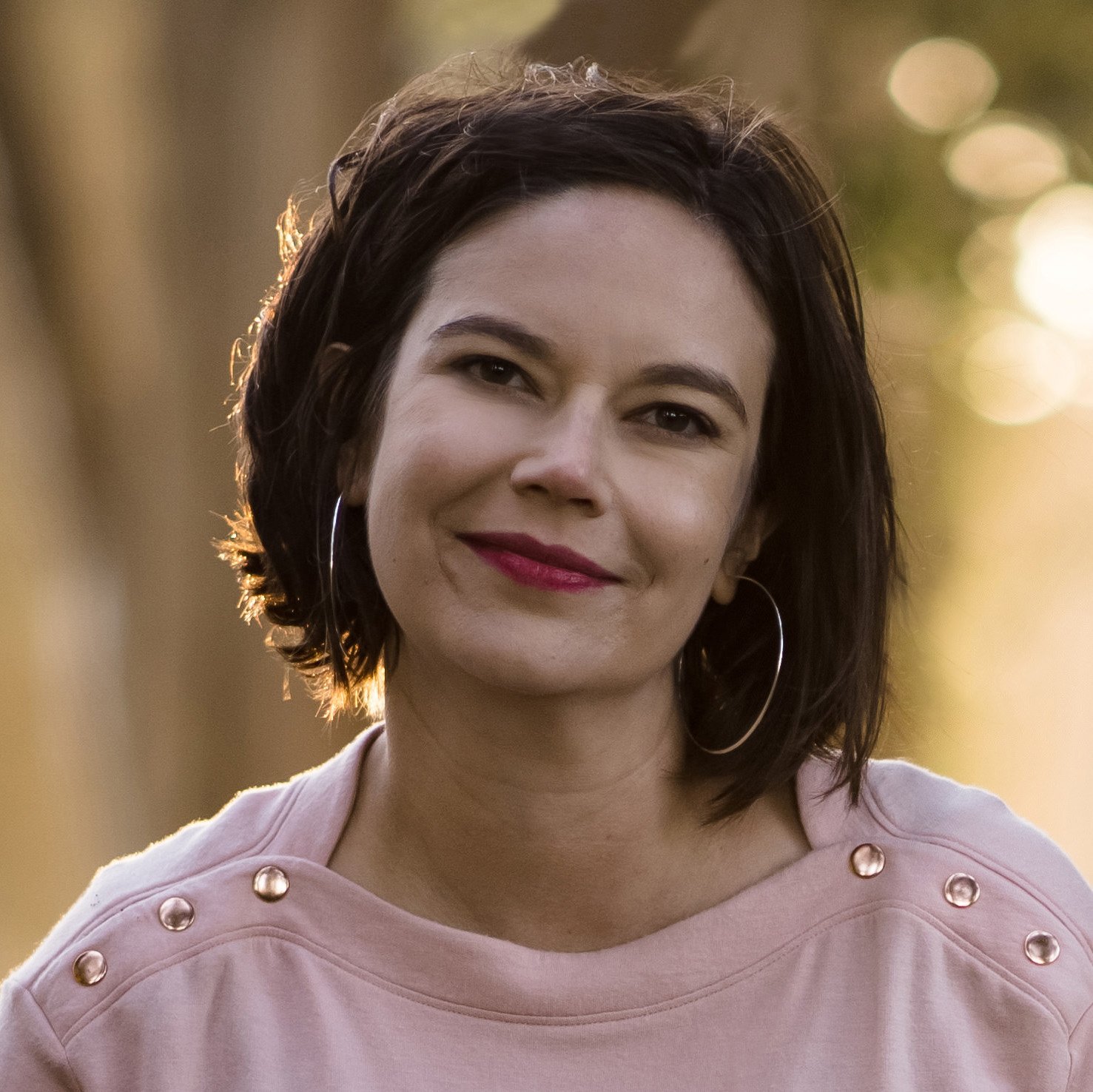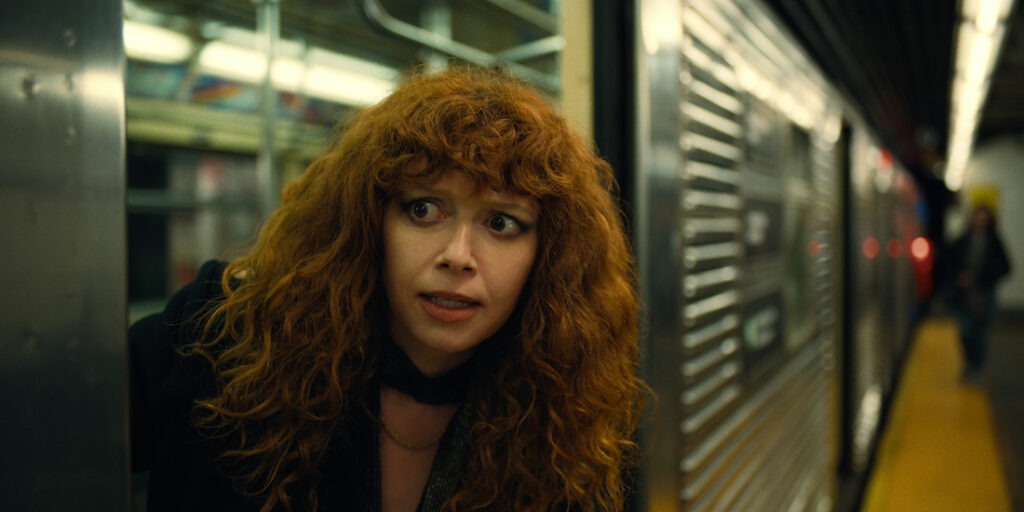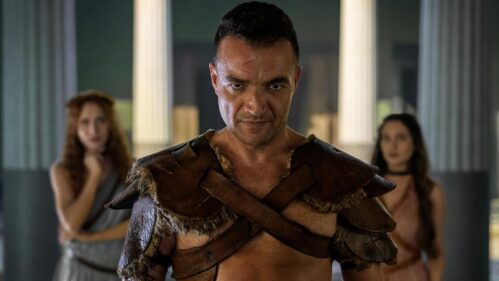When the first season of Netflix’s “Russian Doll” premiered in 2019, it took over my imagination for weeks. Its aesthetic was so specific and fresh, from the soundtrack to the makeup to the lighting. The second season, out April 20, brings us back into main character Nadia’s world. It’s a good place to be.
One of the big draws is just how perfectly Natasha Lyonne embodies Nadia. Her giant red curls telegraph her manic energy, her raspy voice denotes her world-weariness. But it’s really Lyonne’s vibe, her cool-girl essence, that makes the character so compelling. When she speaks nonsense or makes crazy decisions, it feels believable for her and surprising, when it wouldn’t be for many others.
The second season keeps Lyonne at its center but ditches the “Groundhog Day” repetition. This time, Nadia’s not reliving a single day but rather jumping through time in her matriarchal line. She’s also not dying a lot, which certainly is a relief for her and her time-traveling buddy Alan (Charlie Barnett), who is also back in a structurally similar role.
One problem with sophomore seasons is how they tend to drop certain threads to focus on others, dramatically altering the texture of a show. I think of the differences between the first and second seasons of Netflix’s “Gentefied” as a good example, which focused entirely on the central family, losing the capsule episodes that center on other characters in the neighborhood. Its world felt less full because of it.
Nadia’s world is comparably more legible in season two of “Russian Doll,” which does and doesn’t work. For one, it takes away some of the deeply enjoyable nuances of the first season; without the reset/death convention, there’s no video-game tie in. To match that change, we don’t see or really hear anything about Nadia’s profession as a game maker (there’s one throwaway line about how she never works anymore … and by all appearances, she doesn’t) and we don’t watch Alan play anything either. The overall tighter focus in season two removes the initial feeling that “Russian Doll” is a complex puzzle with multiple solutions.

The show uses more traditional storytelling to work as well as it did before, and it doesn’t fully rise to the occasion. Take character development: Greta Lee as Maxine has more to do but it’s hard to top her meme-inspiring “sweet birthday baby” line, although her episode is quite entertaining. For his part, Alan is underutilized—he has his own episode at the same point as he did last season (episode four) and his own time-traveling adventure. But he’s not equal to Nadia in terms of importance or screen time, and since we already know of their connection, his whole thing feels tacked on, like they wanted to keep him but not let him truly share the narrative with Nadia. Annie Murphy joins the cast, having earned enough goodwill from “Schitt’s Creek” to be a pleasant sight on any call sheet. Like Maxine, she gets some great costumes and fun lines but that does not a full character make.
Still, “Russian Doll” is delightful, dense, and thought-provoking, with its central concern being intergenerational trauma, the topic de jour of recent movies like “Encanto” to “Everything Everywhere All at Once.” It’s refreshing to see “Russian Doll” turn traditional racial dynamics on their head—the white woman coming from a dysfunctional background while the person of color enjoys a distinguished, healthy legacy.
Adding to that nice touch of progressive storytelling, “Russian Doll” leverages its reluctant time-hopping premise to ask big questions about how we become who we are. Nadia may time travel, but she can’t change her mother’s mental illness that shaped both their lives. Alan can get to know his brave and extraordinary grandmother, but it doesn’t free him of his anxiety in the present. The concept of our inescapable fates is back from season one, but manifests itself differently.
Despite its heavier themes, “Russian Doll” continues to avoid being depressing by relying on its heroine’s antics and artful world-building. The second season is missing some of the unbridled mania that made the first so much fun, but still delivers on giving us more time with Lyonne’s Nadia and her madcap world.
All of season two screened for review.












